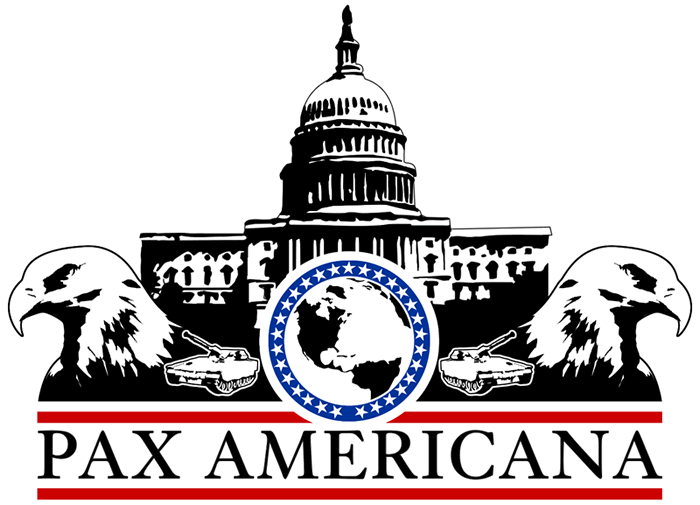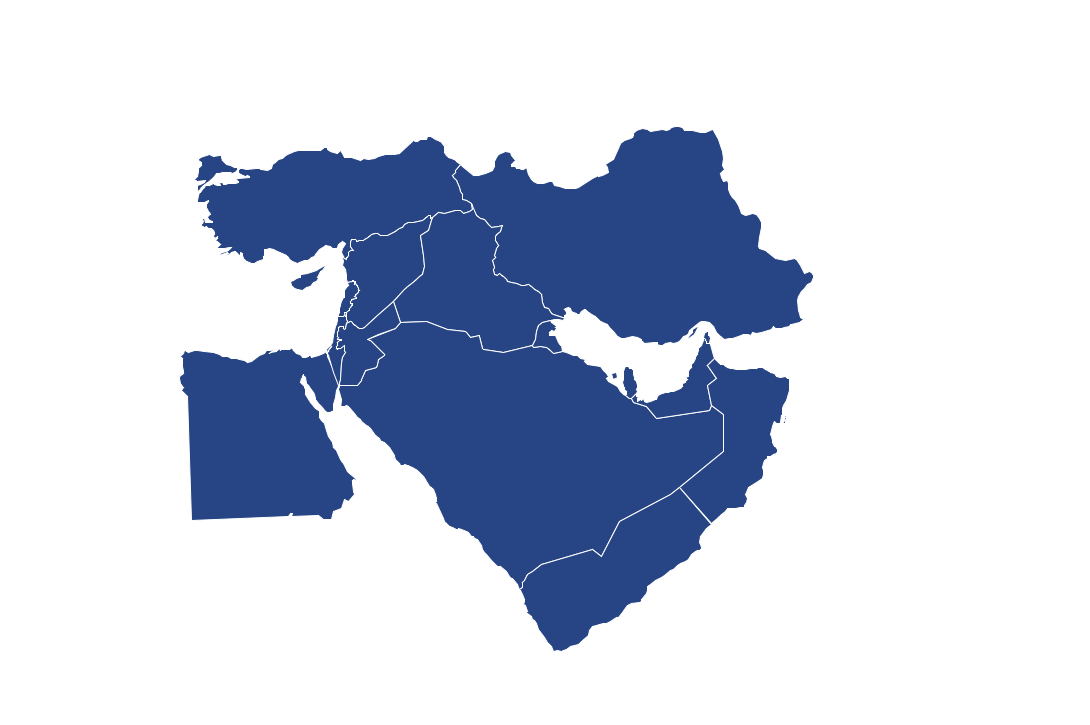
Views: 1984

“If the Nuremberg Laws were applied,
then every post-war American President would have been hanged”
Noam Chomsky
Eurasia
Henry Kissinger, one of the fundamental figures in creating and maintaining the US policy of global hegemony during the Cold War,[1] was quite clear and precise in his overviewing the issue of the American geopolitical position, national goals, and foreign policy. His remarks can be summarized in the following points:
- The US is an island off the shores of the large landmass of Eurasia.

- The resources and population of Eurasia far exceed the resources and population of the US.
- Any domination by any single state from Eurasia (either from the European or the Asian part) is a critical danger for the American geopolitical and geoeconomic aims as well as national interest regardless during or after the time of the Cold War.
- A mortal danger for the US is a formation of any political-military coalitions between the Eurasian great powers (primarily between the USSR/Russia and China) as such a coalition would have a real capacity to outstrip both the US economy and military.
- The US strategic global geopolitical interest is to thwart the creation of such an Eurasian coalition (the USSR/Russia-China).[2]
In fact, H. Kissinger recognized two fundamental facts in dealing with global geopolitics: 1) Eurasia is of the crucial global geopolitical importance; and 2) Russia is a Heartland of Eurasia.[3] Therefore, to have control over Russia means to have control over Eurasia and to control Eurasia means to control the rest of the world. For that reason, the US struggle against the communist USSR during the Cold War or Putin’s Russia today is nothing else than a formal pretext for a realization of the basic US geopolitical task from the global perspective: to have control over the Heartland of Eurasia. Subsequently, any kind of independent and/or stronger Russia is not an acceptable solution for the American policymakers.
A Nature of the US
In order to properly understand the post-Cold War global hegemony foreign policy by the US Administration, it is necessary to realize the very nature of the US as a state. Basically, the US foreign policy of global hegemony is shaped by the two most important internal processes which exist from the very beginning of the US independence and statehood (declared in 1776): 1. A mass consumerist mentality of her citizens that is deeply permeated throughout American (sub)culture; 2. A corresponding policy of maintaining the world’s military supremacy for the sake to ensure privileged possession of global goods, energy, natural resources, and credit. For example, there are 800 US military bases across the globe and one of the biggest of them is located in Kosovo (Bondsteel) – one of the richest regions in Europe according to its reserves of the natural resources (at least 500 billion $US).[4]
The American strategy of global hegemony after WWII was not only to compete against the Soviet military power and political influence but it was and is much more important to establish such a world that is going mandatory to be hospitable for the growth of the US economy. Therefore, the American military-political global dominance was ideologically justified by anti-communism and the US alleged leading role in defending the “free world”. However, after the end of the European communism, dissolution of the Warsaw Pact and dismemberment of the USSR, Washington simply justified a continuation of its Cold War policy of global hegemony by defending Europe (and probably the rest of the world) from the “Russian aggression”. A “free world” was identified with a full acceptance of the American values, norms, political and economic systems, and (sub)culture. According to such a geopolitical project, all of those governments who rejected to “dance according to the American playing” became proclaimed as the enemies of the “free world” threatened to be bombed and occupied (like the Federal Republic of Yugoslavia in 1999). Nevertheless, the fundamental allegory of the American promotion of independence and democracy (the basic components of “free world”) is that this country is not either really independent (being the West Bank of Israel from 1948 onward) nor fully democratic (not being even among the first 30 democratic states in the world).
A numerous US military interventions after 1945, as an instrument for the realization of the geopolitical project of global hegemony, however, very much undermined the very meaning of democracy and leading at the same time to large-scale human rights abuses. The concept of Pax Americana is having as its crucial strategy to maintain cheap supplies of raw materials and especially of the cheap supply of oil as the crucial energetic source for the US consumerism economy. Therefore, immediately after the WWII the basic US strategy became to establish the American hegemony in the oil-rich countries in the region of the Middle East supporting there all kinds of non-democratic and even dictatorial regimes who expressed political loyalty to Washington as the regimes of Iran (Persia) from the CIA/M16-sponsored coup in 1953[5] up to the Islamic Revolution in 1978−1979, Kuwait, Bahrein, Qatar and above all of Saudi Arabia.
 The Middle East and the “Resource War”
The Middle East and the “Resource War”
The beginning of this process of making the regional client states started in 1945 when the US President Franklin D. Roosevelt established a strategic partnership with Abdul-Aziz ibn Saud who was a founder of the modern Saudi royal family and ruling dynasty. The deal was that the US will protect the dynasty, which is from the beginning supporting the fundamentalist Wahhabi brand of the Sunni Islam, from all inner and outer enemies for the exchange of the US privileged access to Saudi oil.[6] Iran was the second country of importance for the US regional “oil policy” where the fundamental American influence was established in 1953 when the CIA-M16 backed coup against democratically elected PM Mohammad Mossadegh brought to power, in fact, the Western oil companies.[7] Therefore, it is not of any surprise that the Iranian Revolution was ideologically and politically an amalgamation of the Islamic Shiite theocracy and very strong anti-Americanism. The US hegemonic design to prevent any hostility actor to gain any foothold in geostrategically and energetically extremely important region of the Middle East was clearly formulated in the 1980 “Carter Doctrine”. One of the fundamental reasons for formulating such doctrine was, of course, protection of the existence of the Zionist Israel and its policy of ethnic cleansing of the domestic Palestinians. Therefore, the US policy to project military power into the region of the Middle East became increased substantially followed by the abnormal militarization of Israel.
In the years of R. Reagan’s Administration, the US transformed Afghani Taliban’s into its sponsored movement and created long-time partnership with Saudi Arabia and Pakistan for the maintaining Islamist mujahedeen Taliban military capabilities against the Soviet army in Afghanistan but at the same time and opening possibilities for the emergence of different anti-Western jihadist military groups like al-Qaeda of Saudi Osama bin Laden who will turn back their arms against their sponsors once the Soviet army left Afghanistan. Therefore, the regional militant anti-Western Islamism in different forms that emerged after the Cold War did not arise suddenly out of the framework of the US imperialistic and hegemonic geopolitical ambitions in the Middle East.
 A new phase of the US policy in the Middle East came into force in 1990−1991 with the First Gulf War that was fought from the US point of view (like and the Second Gulf War in 2003 that resulted in the military occupation of Iraq) for the geopolitical maintenance of the ideology of economic security that was just wrapped into the propaganda of the 2001 G. W. Bush’s doctrine of the “War on Terror”. In essence, the US Administration fought the First Gulf War for the sake to prevent possible post-Cold War challenges to its hyperpower in global politics in the face of “… the world’s effective policeman”.[8] G. W. Bush’s Government skilfully exploited the atmosphere of fear of the further terror attacks in the US society after the terrorist attack of 9/11 that was most probably self-constructed US-Israeli action in which al-Qaeda just played a role of executors in front of the TV cameras. Subsequently, the most hawkish faces around the US President had a very proper reason (casus belli) to start the realization of a long-prepared project of the US world’s supremacy, unilateral actions and non-limited use of the military capacity of the Pentagon. After the US-led coalition’s invasion of Afghanistan in 2001, that was extremely important for having direct control over the production and distribution of the Afghan heroin on the global market (one road goes via the US colony of Kosovo) and for founding a geostrategic base for the invasion of Iran (the main enemy to Israel after 1979), the invasion of Saddam Hussein’s Iraq (fully sponsored by the US Administration of R. Reagan in the war against Iran in the 1980s) became the highest priority of Washington’s foreign policy of establishing a global empire. The Pentagon calculated that a new Iraqi colonial regime would transform its country into the US base of military operations in the very center of the region of the Middle East – a region which is of the fundamental geostrategic global importance with huge reserves of oil and natural gas. Therefore, the region would be in total control by the US with its military bases in Saudi Arabia, Afghanistan and Iraq followed by strong Israeli and Turkish armies.
A new phase of the US policy in the Middle East came into force in 1990−1991 with the First Gulf War that was fought from the US point of view (like and the Second Gulf War in 2003 that resulted in the military occupation of Iraq) for the geopolitical maintenance of the ideology of economic security that was just wrapped into the propaganda of the 2001 G. W. Bush’s doctrine of the “War on Terror”. In essence, the US Administration fought the First Gulf War for the sake to prevent possible post-Cold War challenges to its hyperpower in global politics in the face of “… the world’s effective policeman”.[8] G. W. Bush’s Government skilfully exploited the atmosphere of fear of the further terror attacks in the US society after the terrorist attack of 9/11 that was most probably self-constructed US-Israeli action in which al-Qaeda just played a role of executors in front of the TV cameras. Subsequently, the most hawkish faces around the US President had a very proper reason (casus belli) to start the realization of a long-prepared project of the US world’s supremacy, unilateral actions and non-limited use of the military capacity of the Pentagon. After the US-led coalition’s invasion of Afghanistan in 2001, that was extremely important for having direct control over the production and distribution of the Afghan heroin on the global market (one road goes via the US colony of Kosovo) and for founding a geostrategic base for the invasion of Iran (the main enemy to Israel after 1979), the invasion of Saddam Hussein’s Iraq (fully sponsored by the US Administration of R. Reagan in the war against Iran in the 1980s) became the highest priority of Washington’s foreign policy of establishing a global empire. The Pentagon calculated that a new Iraqi colonial regime would transform its country into the US base of military operations in the very center of the region of the Middle East – a region which is of the fundamental geostrategic global importance with huge reserves of oil and natural gas. Therefore, the region would be in total control by the US with its military bases in Saudi Arabia, Afghanistan and Iraq followed by strong Israeli and Turkish armies.
Another fact is that the US is still the most oil-dependent economy in the world with the biggest mechanized war machine which consumes enormous market and therefore Washington’s goal was and is to prevent any global supply disruptions and/or price fluctuations. For the reason that the demand for the oil consumption was constantly growing on the world’s level and that global oil reserves became of extreme importance for the global strategic power in the recent future, the US Administration decided after the Cold War to transform whole region of the Middle East into its own courtyard for political and economic exploitation. The realization of the plan was going smoothly up to 2014 when Moscow finally decided to crucially defend Syria from the American policy of global banditry, in the same year when the Western Russophobic Drang nach Osten policy was finally stopped in the Euromaidan’s Ukraine. From this point of view, the doctrine of “War on Terror” is crucially bound up with the American attempts to establish geostrategic dominance in extremely petrol-rich region of the Middle East for both oil consumption and prevention of rising power of China to be significantly infiltrated into the region which has to be reserved mainly for the supplying of the US economy. Essentially, the US proclaimed “War on Terror” is nothing else but profit has driven the “Resource War”.[9]
Pax Americana and the “Wars of Humanitarian Intervention”
President B. Obama’s Administration continued the same G. W. Bush’s imperialistic policy of “Resource War” just embracing a more multilateral style of diplomacy and going slowly out of the big ground wars and direct invasions of sovereign states. Nevertheless, he practiced vigorous use of the American military machinery to attack those whom the Pentagon perceived to be most hostile to the US hegemonic ambitions in the Middle East but also in East Africa and South Asia. The strategy included expanded the use of “kill/capture teams” operated by the US military Joint Special Operations Command, drone strikes executed by both the CIA and the US army. B. Obama won a Nobel Peace Prize regardless of the very fact that during his presidency there was no single day of peace. It is calculated that Obama the Bomber dropped during his 8 years of a presidency (two terms) a bomb every 20 minutes. For instance, only up to February 2012,
“…the Obama’s Administration has carried out at least 239 covert drone strikes, more than five times the 44 approved under George W. Bush. And after promising to make counter-terrorism operations more transparent and rein in executive power, Obama has arguably done the opposite, maintaining secrecy and expanding presidential authority”.[10]
The US aggressive, time to time brutal and inhumane foreign policy of the world’s militarism and globalization of war for the sake of Pax Americana can be understood only within the full context of the nature of capitalism and logic of capital itself.[11] An integral part of the US foreign policy of global hegemony is the implementation of bilateral agreements with other states to prevent US soldiers from extradition to the International Criminal Court. In order to force certain countries to conclude such agreement, the US Government is threatening them to withdraw its military and other forms of support if they would not be willing to sign the agreement. Many states accepted such a deal as Israel, Romania or East-Timor[12] and therefore legitimized the US Army to legally violate basic human rights and rules of war.
On the other hand, the US authority is using military means for interventions formally for humanitarian purposes or for protection of human rights. However, that is just a moral excuse for the realization of the American foreign policy’s goals it was clear in many cases but the most obvious one was in 1999 with the bombing of the Federal Republic of Yugoslavia for the formal sake to protect Kosovo Albanian human and minority rights. Nevertheless, the prohibition of the use of force by the international law, as it is clearly formulated, for instance, in the UN Charter Article 2, Paragraph 4, is as well as extended to the so-called „humanitarian intervention“ that refers to the unilateral threat or use of armed force by any state against another to protect the life and liberty of nationals of the latter from acts by their own governments.[13] However, there is only one possibility, according to the international law, to use the force, including and in the cases of „humanitarian interventions“: it has to be accepted by the SC UN. In other words, only if the SC UN according to the UN Charter Articles 39−42 decides that the human rights violations in some country pose a treat to the international peace and regional security and that the measures of a military interventions are necessary, a military intervention against the other state (or its regime) is sanctioned by the international law and community. However, as a matter of fact, the US authority never received such permission for any of its „humanitarian interventions“ which practically means that the US Government is de facto above the international law and community.
The US „Wars of Humanitarian Intervention“ in the overwhelming majority of cases are based on politically motivated „false flags“ produced by the intelligence service (the CIA) pieces of information backed by the global mainstream medias’ „fake news“ at the same time. The Western academic writings even by the most prestigious world’s universities and publishing houses, unfortunately, are directly supporting such imperialistic wars by giving unproven and false „academic“ feedback as it is, for instance, the case with the publication Understanding Global Security by a Senior Lecturer Peter Hough at Middlesex University and published by Routledge. The publication suggests, for instance, that the NATO „humanitarian intervention“ in 1999 against the Federal Republic of Yugoslavia was to „Protect Kosovar Albanians from Serb massacres“,[14] regardless the fact that the only reason for such NATO aggression was to establish proper political conditions for Kosovo independence from Serbia, transformation of the region into the American political and economic colony and continuation of the historical Albanian ethnic cleansing of the local Serbs and non-Albanians.[15]
A Soft Power as a Method
The use of Soft Power is another method implied by Washington in dealing with world politics and international relations. The method refers to the capability of state (or any other actor in global politics) to influence other states, governments or actors to do what the influencer wants but through persuasion, not force or direct threats. In principle, a Soft Power attracts or co-opts members of government, politicians or citizens by different means including, for instance, bribing, financial donations, offering certain benefits, education, financing political parties, organizing public seminars, etc., but it does not directly force them to do what is required. In this respect, the formal NGOs can play a very important role in the promulgation of a Soft Power method of the American global imperialism like New York-based G. Soros’ Open Society Foundation and his Central European University in Budapest. The method is covering a wide scope of areas like culture, values, ideas, politics, national identity, history, rights, etc., representing in essence different but in many cases not lesser forms of influence if compared to the method of a Hard Power which implies much more direct and essentially coercive measures (like ultimatums, economic sanctions or threats of use of the military force). Therefore, a Soft Power method is another way of achieving the goals by involving persuasion and encouragement usually, but not necessarily, rooted in shared norms, values or/and beliefs.
In general, the method of a Soft Power relies on two instruments:
- Persuasion – the ability to convince someone by real or false arguments.
- An ability to attract people by all possible means.
Banditry as a „Business as Usual“
 The ruling US Neo-Con establishment started to push the American foreign policy towards the US domination over Eurasia already from the second half of the 1990s that simply meant a geopolitical struggle with Russia. The Kosovo War in 1999 became the first direct challenge to Russia’s national dignity and geopolitical interests in the region. The architects of the US „Eurasia’s imperialism“ understood quite well that a broader Middle East (including and the Balkans and North Africa) was at the heart of the Eurasian problem from different points of view: geopolitical, ideological, economic and strategic. Therefore, both Gulf Wars and the Kosovo War and the Afghan War in between were fought primarily in order to demonstrate the US strong intention to absolutely dominate over a Greater Middle East in the post-Cold War era. The Second Gulf War in 2003 was a war of showing to the rest of the world that the US foreign policy of the open banditry is going to be a „business as usual“ which had to be silently accepted by the international community. As a matter of fact, it was quite clear that Iraq in 2003 could not develop any kind of effective weapons of mass destruction including and any kind of the ABC weapons due to the effective UN economic and other sanctions against S. Hussein’s Government. Furthermore, in 1991 Iraq already was seriously defeated that it could not think for a longer period of time even about just revitalizing its regular army which became weakened even after the Iraq-Iran War in the 1980s. In general, after the First Gulf War in 1991, there was no serious threat to the US interests in the Persian Gulf region and therefore even did not exist a real reason for the Pentagon to keep up the US presence there.
The ruling US Neo-Con establishment started to push the American foreign policy towards the US domination over Eurasia already from the second half of the 1990s that simply meant a geopolitical struggle with Russia. The Kosovo War in 1999 became the first direct challenge to Russia’s national dignity and geopolitical interests in the region. The architects of the US „Eurasia’s imperialism“ understood quite well that a broader Middle East (including and the Balkans and North Africa) was at the heart of the Eurasian problem from different points of view: geopolitical, ideological, economic and strategic. Therefore, both Gulf Wars and the Kosovo War and the Afghan War in between were fought primarily in order to demonstrate the US strong intention to absolutely dominate over a Greater Middle East in the post-Cold War era. The Second Gulf War in 2003 was a war of showing to the rest of the world that the US foreign policy of the open banditry is going to be a „business as usual“ which had to be silently accepted by the international community. As a matter of fact, it was quite clear that Iraq in 2003 could not develop any kind of effective weapons of mass destruction including and any kind of the ABC weapons due to the effective UN economic and other sanctions against S. Hussein’s Government. Furthermore, in 1991 Iraq already was seriously defeated that it could not think for a longer period of time even about just revitalizing its regular army which became weakened even after the Iraq-Iran War in the 1980s. In general, after the First Gulf War in 1991, there was no serious threat to the US interests in the Persian Gulf region and therefore even did not exist a real reason for the Pentagon to keep up the US presence there.
The US Neo-Con’s right-wing hawks became enough influential in the Clinton’s and later the Bush’s Administrations to decide to compel Kissinger’s goal of continued US domination over a Greater Middle East as in their mind the First Gulf War was a failed war for the reason that the American unchallenged dominance over the region was not established. Such foreign policy shift in the Clinton’s Administration became led by a Secretary of State (a Jew) Madeleine Albright and her mentor a Polish-born Zbigniew (Zbig) Brzezinski (not a Jew) who was a US National Security Advisor in the J. Carter’s Administration and above all an ardent Russophobe. Therefore, the US imperialism started and completed three wars in the area of a Greater Middle East during the Clinton’s and the Bush’s Administrations from 1999 to 2003: the Kosovo War in 1999, the Afghan War in 2001 and the Second Gulf War in 2003. However, the Arab Spring in 2011 and especially the Russian military intervention in Syria from 2014 onward clearly have shown that the area of the Middle East is still not an exclusive American colonial domain.
Conclusion
To conclude, from the very beginning of the existence of the USA in 1776 the warfare was, is and probably is going to be the nature of the American life and (sub)civilization.[16] This very fact is a direct product and consequence of the nature of the economic system of the US and the consumerist mentality of its citizens. The effects on the world’s security and global peace are obvious.
„God created war so that Americans would learn geography“
Mark Twain
[1] A Jew Henry Kissinger was a National Security Advisor and Secretary of State under the US Presidents Richard Nixon and Gerald Ford. He also advised many other American Presidents on US foreign policy and global politics. He was one of the most responsible persons for the CIA-organized military putsch in Chile in 1973 and for the US involvement and atrocities committed in Vietnam. Nevertheless, H. Kissinger received the 1973 Nobel Prize and Medal of Liberty, among other awards. He is one of the most notorious symbols of the US gangster-style foreign policy.
[2] John Rees, Imperialism and Resistance, London−New York: Routledge, 2006, 18. On this issue, see more in: Henry Kissinger, Diplomacy, New York: Simon & Schuster Paperbacks, 1994; Henry Kissinger, Does America Need a Foreign Policy? Toward a Diplomacy for the 21st Century, New York: Simon & Schuster Paperbacks, 2001; Henry Kissinger, World Order, New York: Penguin Books, 2015.
[3] Срђан Перишић, Нова геополитика Русије, Београд: Медија центар „Одбрана“, 2015.
[4] Кавкаски Албанци лажни Илири, Београд: Пешић и синови, 2007.
[5] James C. Van Hook (ed.), Foreign Relations of the United States, 1952−1954: Iran, 1951−1954, Washington: United States Government Publishing Office, 2017.
[6] Michael Klare, „Bush-Cheney Energy Strategy: Procuring the Rest of the World’s Oil“, Foreign Policy in Focus, 2004: www.fpif.org.
[7] On the CIA’s „dirty wars“, see (Douglas Valentine, The CIA as Organized Crime: How Illegal Operations Corrupt America and the World, Atlanta, GA: Clarity Press, INC, 2017).
[8] John Rees, Imperialism and Resistance, London−New York: Routledge, 2006, 17.
[9] Michael Chossudovsky, America’s “War on Terrorism” in the Wake of 9/11, Second edition, Montréal, Canada: Center for Research on Globalization, 2005.
[10] David Rhode, “The Obama Doctrine: How the President’s Drone War is backfiring”, Foreign Policy, 2012-02-27: http://foreignpolicy.com/2012/02/27/the-obama-doctrine/.
[11] On the US globalization of war phenomena, see in (Michael Chossudovsky, The Globalization of War: America’s ‘Long War’ against Humanity, Montréal, Canada: Center for Research on Globalization, 2015).
[12] Peter R. Baehr, Monique Castermans-Holleman, The Role of Human Rights in Foreign Policy, Third edition, New York: Palgrave Macmillan, 2004, 21.
[13] Arie Bloed, Peter van Dijk (eds.), Essays on Human Rights in the Helsinki Process, Dordrecht: Martinus Nijhoff, 1985, 34−35.
[14] Peter Hough, Understanding Global Security, 2nd Edition, London−New York: Routledge, 2008, 127.
[15] Hannes Hofbauer, Eksperiment Kosovo: Povratak kolonijalizma, Beograd: Albatros Plus, 2009.
[16] On this issue, see (Paul Atwood, War and Empire: The American Way of Life, London: Pluto Press, 2010).
 Prof. Dr Vladislav B. Sotirović
Prof. Dr Vladislav B. Sotirović
www.global-politics.eu/sotirovic
sotirovic@global-politics.eu
© Vladislav B. Sotirović 2018
Read our Disclaimer/Legal Statement!
Donate to Support Us
We would like to ask you to consider a small donation to help our team keep working. We accept no advertising and rely only on you, our readers, to keep us digging the truth on history, global politics and international relations.
[wpedon id=”4696″ align=”left”]
FOLLOW US ON OUR SOCIAL PLATFORMS









